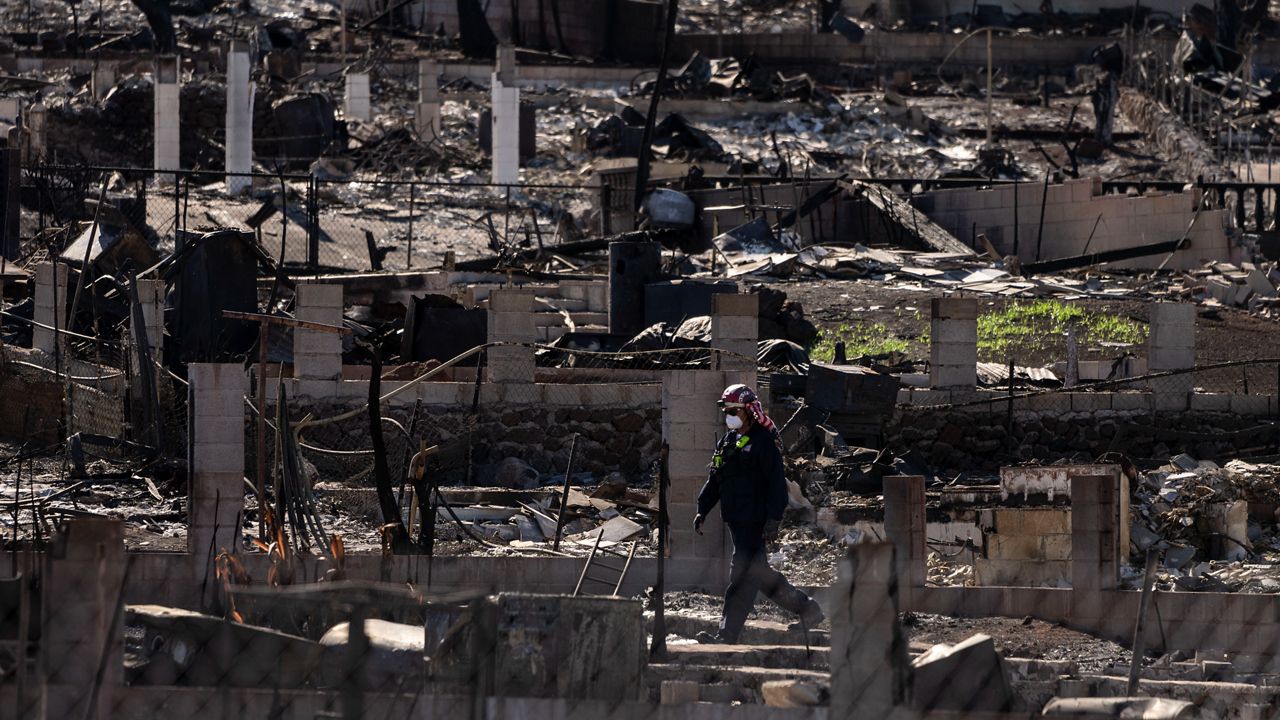In a series of interviews on Sunday, Federal Emergency Management Agency Administrator Deanne Criswell gave a frank assessment of the damage caused by wildfires on Maui, the deadliest wildfire in the U.S. in over a century.
At least 114 people have been confirmed dead, officials said Saturday. Criswell said emergency responders have searched 78% of the area in Lahaina, a town almost entirely destroyed by the fires.
“He's going to be able to see what I saw when I went to Maui last week and just really experienced the complete and utter devastation that this town had experienced,” Criswell said on ABC News’ “This Week” on Sunday. “But he's also going to be able to talk with people and hear their stories and provide a sense of hope and assurance that the federal government is going to be with them.”
The number one priority for the federal agencies assisting with recovery efforts on the ground is registering survivors and helping them get temporary housing in hotels, motels, and short-term home rentals, Criswell said. Tracking people down has been a challenge, she added, because many are staying with relatives or friends and are not at congregate shelters set up by authorities.
Hawaii Gov. Josh Green said on CBS News’ “Face the Nation” on Sunday that around 1,050 people are still missing and the “army of search and rescue teams and 41 dogs” searching the disaster area could take several weeks, particularly as they search the harder-to-navigate larger buildings.
“We do have extreme concerns that because of the temperature of the fire, the remains of those who have died in some cases may be impossible to recover meaningfully,” Green said. “There are going to be people who are lost forever.”
The top FEMA official also said on CNN’s “State of the Union” on Sunday that shortages in funding will require her agency to delay recovery projects across the country into the next fiscal year so “immediate life saving needs” can continue to be funded, included in Hawaii and in California, where Tropical Storm Hilary is expected to arrive Sunday evening.
Biden is asking Congress for $12 billion to continue to fund FEMA’s disaster relief efforts over the next few months and $60 million for pay increases for wildland firefighters battling the blazes in Maui and other parts of the U.S.
FEMA expects its disaster relief fund to go $4.3 billion in the red in September if they don’t receive more funding, according to the agency’s August monthly report.
“We will take measures to ensure that there is always going to be enough funding to continue to support immediate responses to these types of severe weather events,” Criswell said on CNN.
While the exact causes of the Maui wildfires and the human decision-making that may have contributed to a flawed response by state and local officials are still under review, Criswell said climate change plays a role in the increase in “catastrophic type events.”
“Threats we're seeing today are very different than what we saw five to 10 years ago, right? They are more intense, they are more complex,” Criswell said on “Face the Nation” on Sunday. “We are working very hard with all of our local and state officials, to better anticipate and understand what the risk landscape is going to look like, what types of mitigation measures they can put in place to help reduce the impacts of these risks, and help communities with their preparedness plans.”
Green added in his interview that “I know that there’s debate out there whether we should be talking about climate change or not. Well, let’s be real world, climate change is here. We are in the midst of it with a hotter planet and fiercer storms.”
The head of the Maui Emergency Management Agency resigned last week amid criticism that he did not direct his agency to sound the island’s sirens to warn people of the fires, but Criswell said on CBS those decisions should still be made on a local level and that a national standard is unnecessary.
“I think the most important thing is that communities use the tools that they have to understand how they're going to prepare and warn individuals and they put those plans in place,” she said.
Green said the sirens were typically used for tsunami warnings and hurricanes, but that he wished they had been used as the fires grew. There have been “six fire emergencies” in August so far, compared to six between 1953 and 2003, Green said.
“Of course, as a person, as a father, as a doctor, I wish all the sirens went off," the governor said, calling the response from the now-resigned Maui emergency management official — who stood by his decision to not blare the sirens — “utterly unsatisfactory to the world.”




